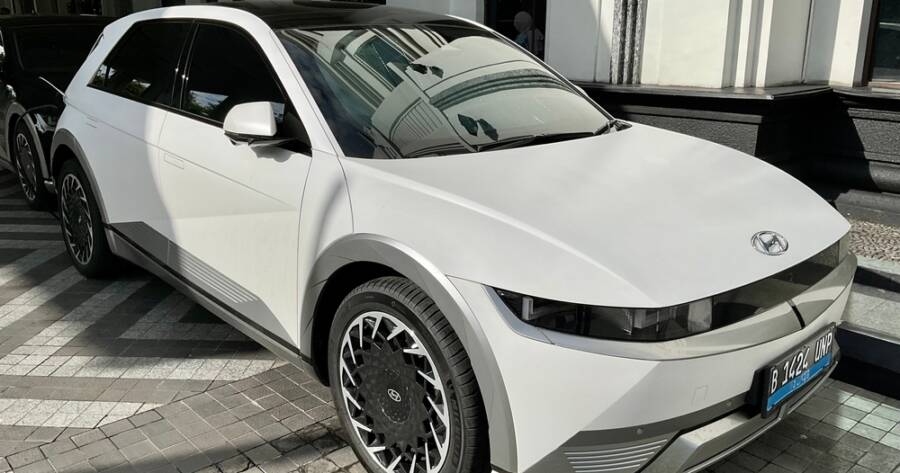The Hyundai Ioniq is making waves in the automotive industry, offering a glimpse into the future of sustainable transportation. With growing concerns over climate change and air pollution, many automakers are shifting their focus toward cleaner, greener alternatives. The Ioniq, which comes in electric, hybrid, and plug-in hybrid versions, represents Hyundai’s commitment to reducing its environmental footprint while providing consumers with versatile, efficient vehicles. This article explores how the Ioniq is influencing the evolution of mobility, with a focus on sustainability, technological innovation, and design.
The Rise of Sustainable Mobility
The automotive world is undergoing a seismic shift, as electric vehicles (EVs), hybrid systems, and alternative energy sources are becoming more popular. The rise in consumer awareness about environmental impacts, combined with government regulations aimed at reducing carbon emissions, has set the stage for an energy revolution in transportation. In this context, the Hyundai Ioniq stands out as a prime example of how automakers can drive forward-thinking solutions without compromising on performance, style, or comfort.
Unlike traditional gasoline-powered cars, which contribute to carbon emissions and air pollution, electric vehicles (EVs) like the Ioniq are built to operate with zero tailpipe emissions. By adopting an electric-powered drivetrain, the Ioniq helps reduce greenhouse gas emissions and dependence on fossil fuels, making it an eco-friendly option for those looking to reduce their carbon footprint.
A Diverse Range of Powertrains
One of the defining features of the Hyundai Ioniq is its versatility. The Ioniq family includes three powertrain options: the fully electric Ioniq Electric, the hybrid Ioniq Hybrid, and the plug-in hybrid Ioniq Plug-in Hybrid. This range provides consumers with flexibility, depending on their driving needs and environmental priorities.
- Ioniq Electric: The fully electric model eliminates gasoline altogether, relying on an all-electric powertrain to deliver a quiet, smooth driving experience. With a growing network of fast-charging stations and an improving range per charge, the Ioniq Electric is increasingly becoming a viable option for long-distance travel. However, it is important to note that range anxiety and charging infrastructure can still be limitations in certain areas.
- Ioniq Hybrid: For those who are not yet ready to make the full switch to an electric-only vehicle, the Ioniq Hybrid offers a balanced solution. Combining an internal combustion engine with an electric motor, the Ioniq Hybrid provides a seamless driving experience while improving fuel efficiency. The hybrid system can also reduce CO2 emissions, which makes it a step toward more sustainable driving.
- Ioniq Plug-in Hybrid: The Ioniq Plug-in Hybrid is a hybrid vehicle with a larger battery capacity that allows for a greater all-electric driving range. Once the electric charge is depleted, the vehicle seamlessly switches to the gasoline engine, offering the best of both worlds. This model offers flexibility and convenience, particularly for drivers who have long daily commutes but want to reduce their gasoline consumption.
Cutting-Edge Technology for Sustainability
The Ioniq is more than just an eco-friendly vehicle; it’s also equipped with innovative technologies designed to enhance efficiency, safety, and the overall driving experience. Features such as regenerative braking and energy-efficient climate control systems help maximize the vehicle’s efficiency and battery life. Regenerative braking, in particular, converts kinetic energy into electricity, which is stored back in the battery, improving the overall range.
The Ioniq also integrates smart technologies to help optimize driving efficiency. For example, the Smart Regenerative System adjusts the amount of regenerative braking based on driving conditions. This feature helps to enhance battery regeneration while providing a more comfortable driving experience.
For those concerned with the environmental impact of vehicle manufacturing, the Ioniq is constructed using sustainable materials, with Hyundai focusing on minimizing waste during production. The use of recycled and eco-friendly materials is part of the company’s broader sustainability strategy, which includes carbon-neutral goals by 2045.
Enhancing Accessibility Through Charging Infrastructure
A major barrier to the widespread adoption of electric vehicles remains charging infrastructure. While the number of public charging stations continues to grow, it is still limited in some areas. Hyundai has responded by partnering with charging networks to expand access to fast-charging stations, making the Ioniq Electric more practical for long-distance travel.
In addition to public charging, Hyundai offers an at-home charging option that allows owners to charge their Ioniq overnight, making the transition to an electric vehicle more seamless. The growth of home charging solutions is expected to support the broader adoption of EVs, which can ultimately help reduce the reliance on fossil fuels.
Driving Towards a Cleaner Future
The Hyundai Ioniq represents an exciting glimpse into the future of transportation. With its eco-friendly powertrains, innovative technology, and commitment to sustainability, it is helping to shape the future of mobility. Whether through the fully electric Ioniq Electric, the fuel-efficient Ioniq Hybrid, or the versatile Ioniq Plug-in Hybrid, this family of vehicles offers solutions for a range of drivers looking to reduce their environmental impact without sacrificing convenience or performance.
As electric and hybrid vehicle options become more accessible and practical for a larger portion of the population, it is likely that more consumers will consider these vehicles as viable alternatives to traditional gasoline-powered cars. Furthermore, with the ongoing expansion of charging infrastructure and advancements in battery technology, EVs are expected to become more convenient and affordable, further accelerating the transition to a cleaner and more sustainable future.
Drive One Today!
The Hyundai Ioniq’s role in shaping sustainable mobility is a testament to the automaker’s dedication to environmental responsibility and innovation. While electric vehicles still face challenges like range anxiety and limited charging infrastructure, the Ioniq offers a compelling solution that balances sustainability with performance and convenience.
Through its diverse powertrain options, cutting-edge technologies, and commitment to eco-friendly manufacturing, the Ioniq is helping to pave the way for a greener, more sustainable automotive future. As more consumers choose to embrace alternative energy solutions, the Ioniq’s influence will likely continue to grow, driving the automotive industry toward a cleaner tomorrow.
